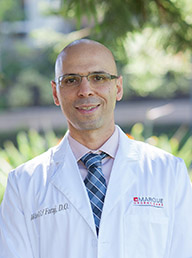
One of Dr. Ohsumi’s major accomplishments was identifying the genes used for autophagy in baker’s yeast. He was then able to use this info to illustrate how this mechanism for autophagy works in human cells. These discoveries helped to reveal that mutations in autophagy genes can cause disease states, such as cancer, neurodegenerative conditions, and type 2 DM, in humans. This is because autophagy helps control six important physiological functions:
- Providing energy production
- Supporting the building blocks for cellular renewal
- Augmenting cellular response to stress, including starvation
- Renewing debris after infection
- Contributing to embryo development and cell differentiation
- Controlling quality control measures, such as eliminating damaged DNA
As a result, boosting autophagy is a critical consideration to improve and maintain our well-being. Three important lifestyle modifications can help induce and optimize autophagy:
EXERCISE
The first is exercise, especially high intensity interval training, which induces damage to muscles and tissues.
INTERMITTENT FASTING
Two is intermittent fasting, that is 16-18 hours per day, usually done by skipping breakfast, which induces biological stress.
HIGH FATS and LOW CARBS
The third is a high fat and low carb diets, which induces ketosis. This occurs when diet consists of 60-70% fat, 20-30% protein, while carbohydrates are kept below 50gm. Further, similar benefits occur when carbohydrates did not exceed 30% of the overall caloric intake. Interestingly, too much protein in the diet can inhibit autophagy. Furthermore, lowering protein intake to 25gm per day once a week can further induce autophagy.
In all, our body’s autophagy process contributes significantly to preserving health and reversing disease by decreasing inflammation and improving cellular health.
The information provided is for general interest only and should not be misconstrued as a diagnosis, prognosis or treatment recommendation. This information does not in any way constitute the practice of medicine, or any other health care profession. Readers are directed to consult their health care provider regarding their specific health situation. Marque Medical is not liable for any action taken by a reader based upon this information.
